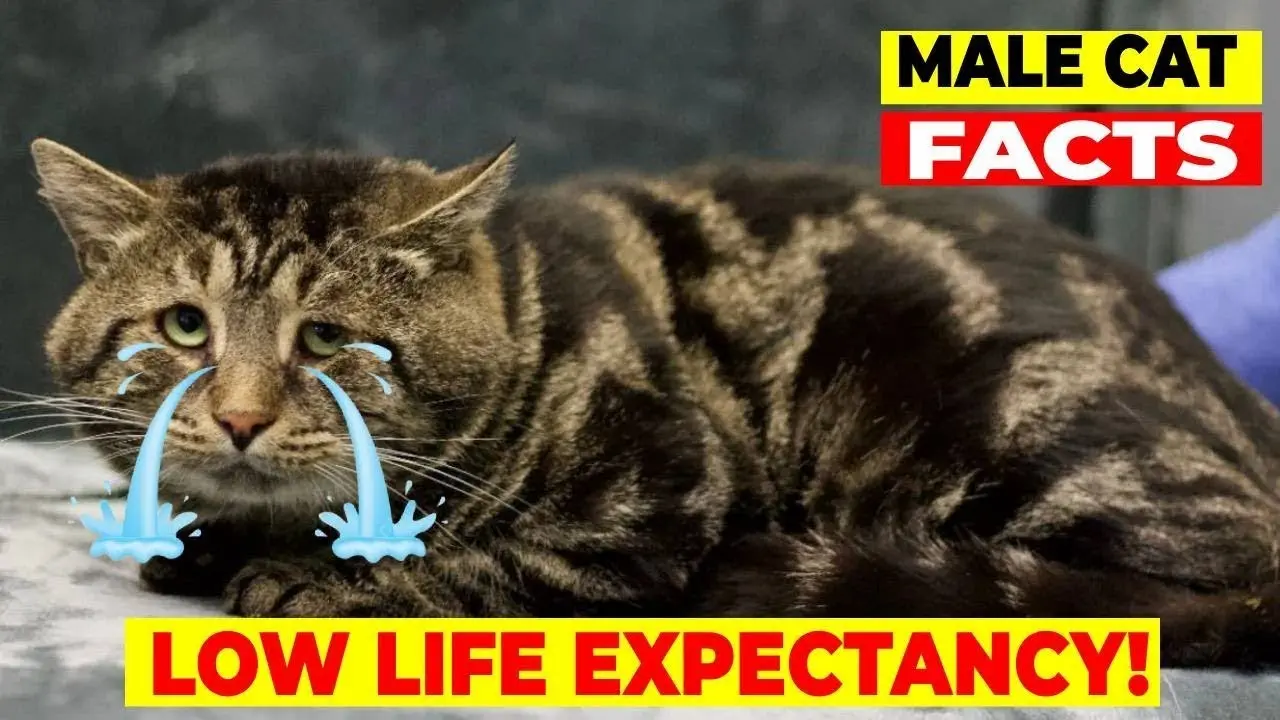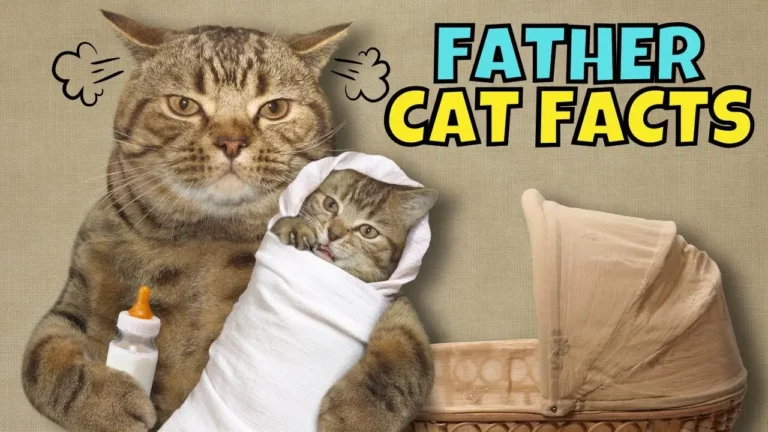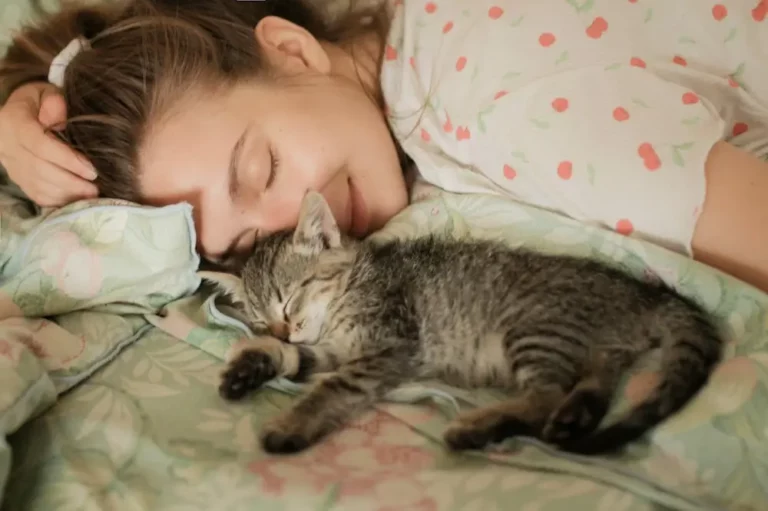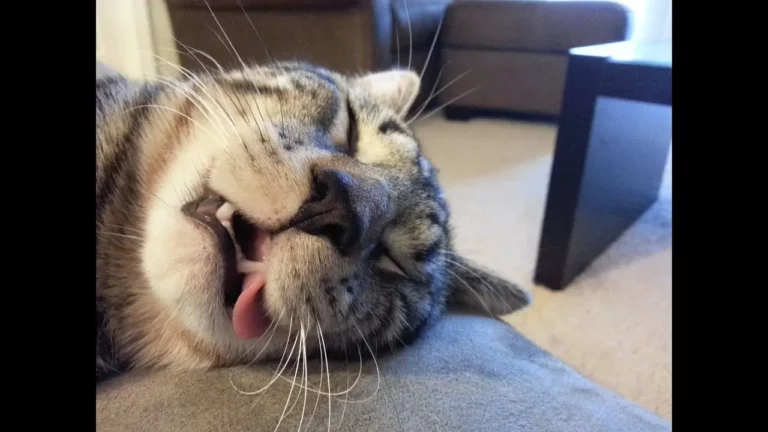12 Surprising Facts About Male Cats (#9 Is Disturbing)
When it comes to male cats, there are several intriguing and lesser-known facts that might surprise you. For instance, did you know male cats are often more affectionate than their female counterparts?
They also tend to have larger territories and unique vocalizations. But that’s just scratching the surface.
As you explore these fascinating aspects, you’ll uncover some startling behaviors, including one particularly disturbing fact that stands out.
Are you ready to challenge your perceptions about male cats and discover what makes them so unique? Let’s get started.
Male Cats Are More Affectionate
Contrary to popular belief, male cats often show more affection than their female counterparts. This might surprise you, especially if you’ve always thought that cats, in general, are aloof and independent.
Male cats, particularly those who’ve been neutered, tend to be more social and loving.
They frequently seek out human company, enjoying petting sessions and snuggling on laps. Their affectionate behavior stems from their natural tendency to form strong bonds with their owners and other pets.
You might notice that male cats are more likely to follow you around the house, rubbing against your legs or purring loudly when you give them attention.
They often display a higher level of attachment, making them wonderful pals for those looking for a more interactive pet.
This behavior isn’t just a fluke; it’s backed by observations and studies showing that male cats are generally more people-oriented.
They Have Larger Territories
Male cats typically claim larger territories than female cats, often patrolling extensive areas to mark their presence. You might notice your male
Male cats are known for their adventurous spirit, often venturing into neighboring territories to assert their presence.
This behavior is driven by their instinct to find mates and secure resources, ensuring they’ve enough food and safe places to rest.
When your male
By rubbing his face on objects or spraying urine, he leaves behind pheromones that signal to other cats that the area is claimed.
This behavior helps avoid direct confrontations, as other cats can sense the boundaries without engaging in fights.
It’s essential to understand that this territorial behavior is natural and helps your
If you’re worried about your
Toys, climbing structures, and interactive play can help satisfy his adventurous nature and reduce the urge to roam.
Ensuring your
Unique Vocalizations
Your male
From the classic meow to growls and chirps, these vocalizations can provide insights into what your
When your male
However, if you hear a high-pitched yowl, it could indicate discomfort or a desire for attention.
Pay close attention to the context, as it can affect the meaning of these sounds.
For example, a chirping sound is often used by male cats when they spot birds or insects, indicating excitement or a hunting instinct.
Growling, on the other hand, is a clear sign of aggression or fear and shouldn’t be ignored.
Spraying Behavior
While understanding vocalizations is important, addressing your male
Spraying is a common issue, especially in unneutered male cats. When your
The first step in addressing this behavior is understanding why it happens.
Male cats spray primarily for communication.
They’re leaving a scent mark to signal their presence to other cats, often driven by stress, changes in the environment, or the presence of other animals.
Neutering your
If your neutered
Changes in routine, new pets, or even rearranged furniture can trigger spraying.
Provide your
Using enzymatic cleaners can effectively remove the scent of urine, discouraging your
Higher Risk of Feline Leukemia
Unneutered cats face a higher risk of contracting cat leukemia, a serious and often fatal viral infection.
Male cats, especially those who roam outdoors, are more likely to encounter infected felines and, as a result, are at greater risk.
FeLV weakens your
Once infected, your
To protect your
Regular vet check-ups can help identify any early symptoms and manage your
They Can Be Left-Pawed
Did you know male cats can be left-pawed, just like some humans are left-handed?
It’s true! Studies have shown that cats, like many other animals, can exhibit a preference for one paw over the other.
Surprisingly, male cats are more likely to favor their left paw, while females often prefer their right.
This phenomenon is known as ‘lateralization,’ which is the tendency for certain processes or functions to be more dominant on one side of the brain than the other.
If you observe your
This preference can tell you a lot about your
Understanding whether your
For example, you can place toys or food dishes in positions that are more accessible based on his paw preference.
Not only does this make life easier for your
Neutering Alters Personality
Just as lateralization offers insights into your
Post-neutering, many cats display a reduction in aggressive behaviors, such as fighting and territorial spraying. These changes often result in a more relaxed and affectionate
Neutering also affects your
This change can make him more approachable and easier to manage, especially if he was previously prone to wandering or showing signs of anxiety.
It’s important to note that while neutering generally leads to positive behavioral changes, every
Males Are More Social
Male cats often exhibit more social behaviors compared to their female counterparts.
If you’ve ever noticed your male
Male cats tend to be more outgoing and enjoy interacting with both humans and other animals.
They’re generally more likely to seek out attention, follow you around the house, and even initiate playtime.
This social nature can make male cats wonderful partners, especially if you’re looking for a pet that’s engaging and interactive.
You might find that male cats are quick to form bonds not only with their human families but also with other pets.
They often show a higher tolerance for other cats and can be more accepting of new additions to the household.
This can make integrating a new pet easier if you already have a male
Additionally, male cats are often more vocal, using their meows and purrs to communicate their needs and desires.
Understanding this social behavior can help you create a more enriching environment for your male
Providing interactive toys, regular play sessions, and plenty of cuddle time will keep your male
Cannibalistic Tendencies
Contrary to popular belief, instances of cannibalistic behavior in male cats are extremely rare.
While such actions can occur under extreme circumstances, they aren’t common in well-cared-for, domesticated cats.
In the wild, these behaviors are often driven by survival instincts, such as food scarcity or the need to eliminate competition. However, in a home environment, where food is readily available and stress levels are low, these tendencies are highly unlikely to manifest.
It’s essential to understand the factors that might trigger such rare behaviors.
Extreme stress, overcrowding, or severe malnutrition can push male cats into unusual actions.
Additionally, these instances might be more associated with feral or stray cats living in harsh conditions.
Ensuring your
If you ever observe aggressive or unusual behavior in your
They can assess your
Providing a stable, loving home with proper care and nutrition makes it highly improbable for your male
Territorial Aggression
In many cases, territorial aggression in male cats stems from their instinct to protect their domain.
This behavior is deeply rooted in their natural instincts.
When another
This is his way of asserting dominance and ensuring that his space remains under his control.
To better manage territorial aggression, it’s essential to create a stable environment for your male
You can start by providing clear boundaries and designated areas where he feels safe.
Avoid abrupt changes in his environment, as this can elevate his stress and lead to more aggressive behavior.
If you introduce a new pet or person, do so gradually, allowing your
It’s also helpful to offer plenty of enrichment, such as toys, scratching posts, and climbing structures, to keep him occupied and reduce the likelihood of aggressive outbursts.
In some cases, consulting a veterinarian or animal behaviorist can provide additional strategies tailored to your
Longer Life Span
Surprisingly, neutered male cats tend to live longer than their unneutered counterparts.
When you choose to neuter your male
Without the drive to roam and fight over territory, neutered cats face fewer injuries and infections.
Neutered cats are less likely to engage in risky behaviors.
They’re less inclined to wander far from home, reducing their exposure to traffic accidents and encounters with predators. This safer, more stable lifestyle contributes to a longer lifespan.
Additionally, neutered cats are often less aggressive and more content, leading to fewer stress-related health issues. By neutering your
He’s less likely to mark territory with strong-smelling urine or display disruptive behaviors. This harmony not only benefits your
Distinctive Face Shapes
Male cats often have more pronounced and angular face shapes compared to female cats.
This distinction is mostly due to hormonal differences, particularly testosterone, which influences the development of broader and more defined facial features.
You’ll notice that male cats tend to have a more chiseled jawline and wider cheeks, giving them a distinctive look that sets them apart from their female counterparts.
These facial characteristics can also help you identify the gender of a
This difference becomes especially noticeable once male cats reach maturity.
The pronounced facial features not only contribute to their physical allure but also play a role in their overall social behavior and interactions.
Conclusion
Understanding the unique behaviors of male cats is essential for providing them with a safe and enriching environment.
By recognizing their affectionate nature, territorial instincts, and the rare but possible cannibalistic tendencies, you can better meet their needs.
Ensuring they have enough space, mental stimulation, and regular health check-ups will help prevent issues and keep them happy.
With the right care, your male






